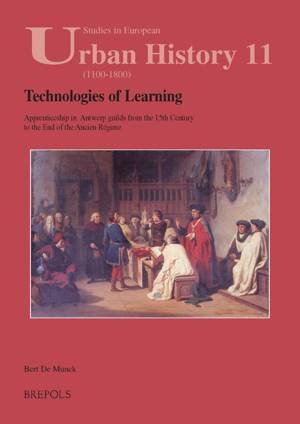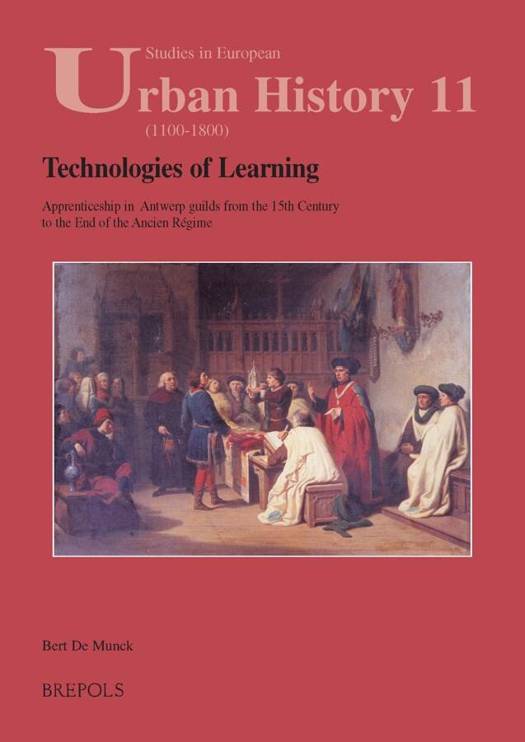
- Afhalen na 1 uur in een winkel met voorraad
- Gratis thuislevering in België vanaf € 30
- Ruim aanbod met 7 miljoen producten
- Afhalen na 1 uur in een winkel met voorraad
- Gratis thuislevering in België vanaf € 30
- Ruim aanbod met 7 miljoen producten
Zoeken
Technologies of Learning
Apprenticeship in Antwerp from the 15th Century to the End of the Ancien Regime
Bert de Munck
Paperback | Engels
€ 53,00
+ 106 punten
Omschrijving
The importance of training and education is on the increase. While the production of 'human capital' is seen as a motor for a competitive economy, skills and expertise proof to be necessary for social mobility. Remarkably, in conceiving modern forms of 'apprenticeship', several mechanisms from the acien regime, seem to return. The difference between public and private initiative is disappearing, education and training is being confused, and in order to acquire generic skills as flexibility, communicability, self-rule, creativity and so on, youngsters have to learn 'in context'. Even for maths, scholars now talk of 'situated learning'.Before the advent of a formal schooling system, training took place on the shop floor, under the roof of a master. The apprentice not only worked but also lived in his master's house and was thus trained and educated at the same time. In cities, this system was formally complemented by an official apprenticeship system, prescribing a minimum term to serve and an obligatory masterpiece for those who wanted to become masters themselves. Traditionally, historians see this as an archaic and backward way of training, yet this book's aim is to show that is was instead a very flexible and dynamic system, perfectly in tune with the demands of an early modern economy.In order to understand it fully, however, we should differentiate the informal training system organised via a 'free market' of indentures on the one hand and the institutionalised system of craft guilds on the other. In Antwerp, early modern guilds had a project of 'emancipating' their members. They didn't simply produce certain skills, but through a system of quality marks defended the honour of craftsmen. This is the difference with current practices. By representing hands-on skills as superior, guilds supplied a sort of symbolic capital for workers.
Specificaties
Betrokkenen
- Auteur(s):
- Uitgeverij:
Inhoud
- Aantal bladzijden:
- 318
- Taal:
- Engels
Eigenschappen
- Productcode (EAN):
- 9782503522708
- Verschijningsdatum:
- 4/02/2008
- Uitvoering:
- Paperback
- Formaat:
- Trade paperback (VS)
- Afmetingen:
- 181 mm x 250 mm
- Gewicht:
- 680 g

Alleen bij Standaard Boekhandel
+ 106 punten op je klantenkaart van Standaard Boekhandel
Beoordelingen
We publiceren alleen reviews die voldoen aan de voorwaarden voor reviews. Bekijk onze voorwaarden voor reviews.








